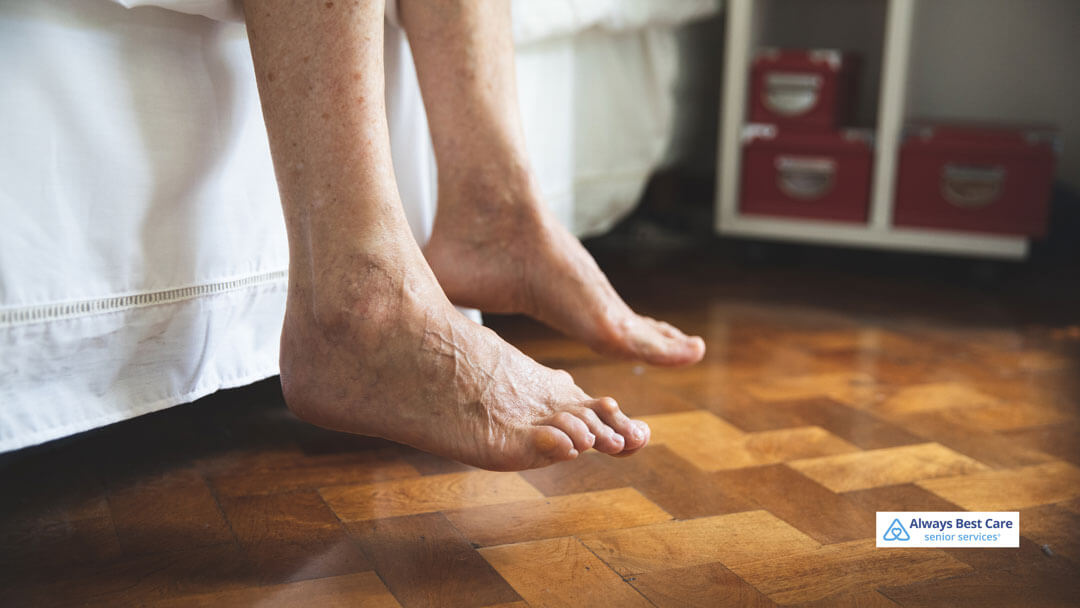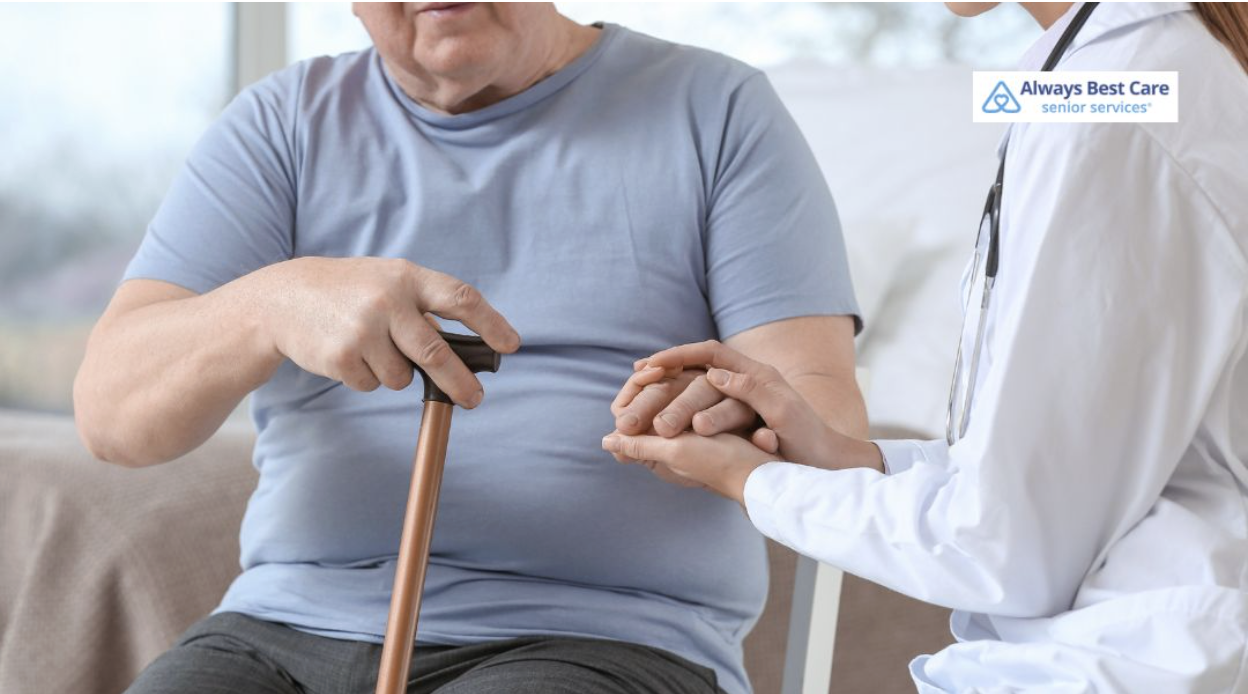On Your Feet: Common Foot Problems for Seniors

Each foot comprises 26 bones and 33 joints, along with numerous muscles, tendons, and ligaments. These complex structures bear the brunt of years of walking, running, and other activities, making them prone to various ailments as we age.
As we age, the protective fat padding beneath the skin of the feet thins out, decreasing cushioning against shocks. Blood circulation may slow, and nerves might not transmit sensations as sharply as before. These changes increase the risk of injuries, making existing foot problems more troublesome.
Table of Contents
Inspect Your Feet Daily
Regular foot inspections can prevent complications. Seniors or their caregivers should examine the feet daily for any signs of injury, infection, or other abnormalities such as cuts, sores, blisters, or changes in nail or skin condition. Using a long-handled mirror can aid in viewing hard-to-see areas. Identifying issues early can be instrumental in managing health conditions before they escalate.
Move Your Feet
Movement is beneficial not just for overall health but specifically for foot health. Encouraging activities like rotating the ankles, stretching the feet, and walking can enhance blood flow and prevent stiffness and pain. Elevating the feet when seated can also help reduce swelling and improve circulation. Gentle foot massages also promote circulation and alleviate discomfort from conditions like edema.
Keep Nails Trimmed
Keeping toenails trimmed is vital to prevent discomfort and complications such as ingrown toenails. To avoid ingrown nails, nails should be cut straight across and not too short. It’s easier to trim nails after bathing when they are softer. Observing nail texture or color changes is important, as these can indicate fungal infections or other health issues.
Use a Moisturizer
Applying moisturizer daily after washing can help maintain skin elasticity and prevent dryness and cracks. Specialized foot creams designed for dry or sensitive skin can provide additional benefits and help keep the skin supple and less prone to injury.
Wear Fitting Shoes
Wearing correctly fitting shoes is essential. Old, worn-out shoes often lose shape and support, while the feet might change in size or shape with age. Shoes should comfortably support the foot without squeezing or allowing excessive movement, as both can lead to issues such as blisters or sores. Opt for shoes with a non-slip sole and adequate cushioning to safeguard against falls and provide stability.
Be Proactive about Your Foot Health
Do not underestimate foot pain or changes in foot health. Regular consultations with a healthcare provider are crucial for maintaining foot health. A podiatrist can offer professional care and guidance, particularly for those with diabetes or circulatory issues, where foot health is critical. If mobility or transportation is a concern, in-home care services can assist with routine foot care and medical appointments.Contact Always Best Care Nashville at +1 615-678-0293 to schedule a free consultation and learn more about the benefits of in-home care.





